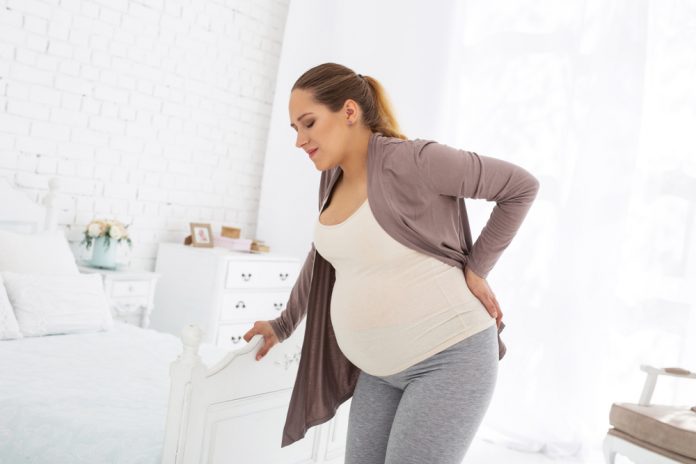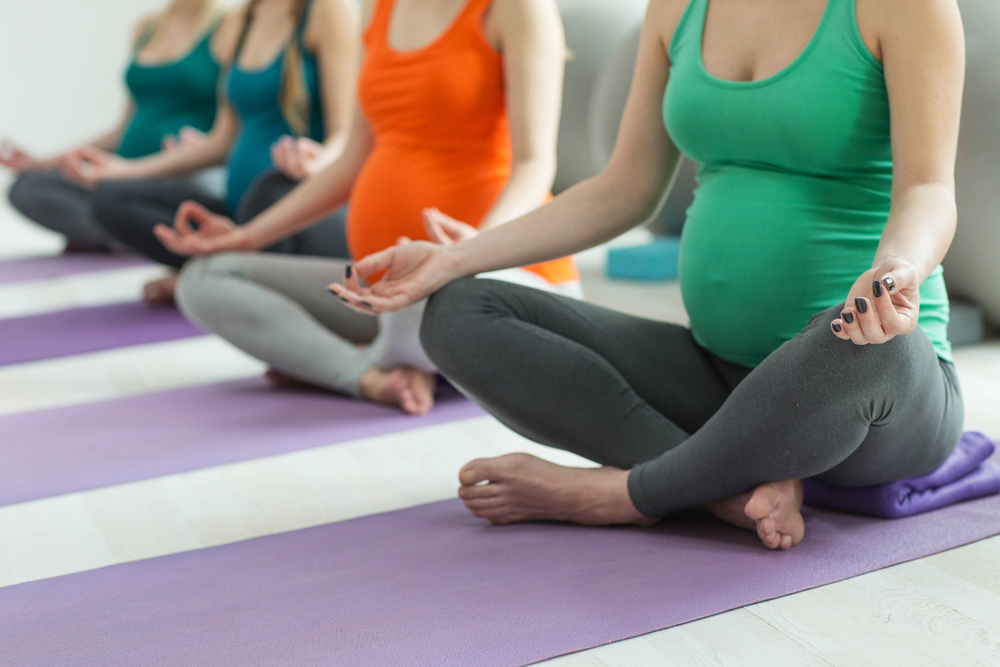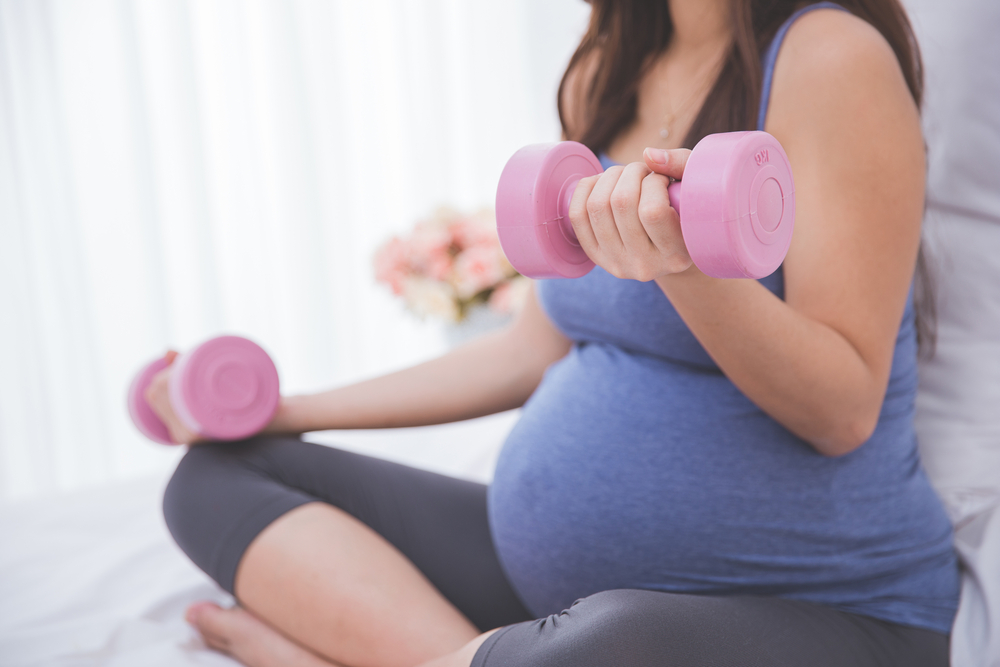Here, Bodytonic Clinic share their top 13 ways that women can alleviate the symptoms of pregnancy-related back pain as recommended by experts
It is very common for pregnant women to experience back pain, especially during the early trimesters of their pregnancy. In fact, 50% of women will experience back pain during pregnancy, in some capacity. Unfortunately, back pain can be very irritating and uncomfortable to deal with, especially whilst managing your other pregnancy symptoms too. To help you through this time, Bodytonic Clinic has brought you their top tips for dealing with back pain through your pregnancy.
What causes back pain during pregnancy?
Your body undergoes a lot of physical changes during pregnancy which can put some strain on your body and back. First of all, your ligaments loosen and stretch as your body prepares itself for going into labour, which affects your posture and can place strain on your joints. Weight gain and increased fluid retention can also put pressure on the sciatica nerve, causing sciatica, which is a type of pain that runs from your lower back and hips to your feet.
Later on, in pregnancy, most women will experience a shift in their centre of gravity due to weight gain, which can lead to bad posture. You might find yourself leaning backwards more often, for example, placing strain on your back. This weight gain might also cause your muscles to tighten which can also cause discomfort in your lower and upper back.
All of these changes are a normal part of pregnancy, however, and luckily, there are a few different ways that you can relieve your back pain safely whilst pregnant.
Ways to safely relieve back pain whilst pregnant
1. Pregnancy massage
When your posture changes in pregnancy, your muscles adapt to this new posture which can result in compression on the sciatic nerve which runs down your lower back and leg. A pregnancy massage can be effective in loosening the muscles in this area and release some of the pressure on this nerve. It’s also the perfect way to treat yourself to some self-care before the baby arrives!
2. Stretches
Regular stretching is a good way to loosen as well as strengthen the muscles in your back, easing back pain and preventing it from occurring in the future. Try adding some gentle pregnancy stretches into your usual exercise routine to build up strength in your back. Remember, because of the increase in the relaxin hormone in your body during pregnancy, it’s important to be careful whilst exercising. Your body might be more flexible than it usually is, however this can make it easier to overstretch and injure yourself.
3. Prenatal yoga
To get some assistance in your stretching, why not join a prenatal yoga class? As well as stretching your muscles, in prenatal yoga, you will also teach you some breathing exercises and meditation techniques which can be effective for pain relief. Prenatal yoga is also effective in reducing stress and anxiety, helping you to mentally as well as physically prepare for your child’s arrival.
4. Sleep
Sleep is very restorative, especially during pregnancy. Whilst sleeping, the chemical properties in your body replenish, which is essential for healing and pain relief. It’s important that pregnant women get at least 7 hours of sleep every night, especially if you’re struggling with pain in your back. Make sure that your mattress is firm and supportive of your back, to avoid backache and to improve sleep quality.
5. Meditation
Meditation can be very effective for pain relief. Practising breathing techniques whilst meditating can help unclench tense muscles in your back and help to decrease your perception of pain. Practising meditation will teach you to focus on something calming such as the ocean and waves, which can be effective pain-relief when experiencing back pain and for during labour too.
6. Acupuncture
Acupuncture is a complementary therapy which has proven to be beneficial in pregnancy. During acupuncture, thin needles are inserted into different points of the body which stimulates the nerves and other tissues to release endorphins. This can change the processing of pain to the brain and spinal cord. You should speak to your GP before trying acupuncture. When going to an acupuncture appointment, make sure that the acupuncture therapist knows you are pregnant beforehand.
7. Improving your posture
Many pregnant women find that their posture changes as their centre of gravity shifts forward whilst pregnant. This means that you might find yourself leaning backwards a lot, which can place strain on your back. The best way to avoid this is to work on your posture. When standing, hold your head straight, keep your shoulders back and your chest forward. Try to also keep your knees straight but not locked and pull in your stomach. When sitting, keep your back straight and shoulders back, and try to sit as far back in your chair as possible. You can also consider getting a back support if you struggle to find a comfortable position whilst sitting.
8. Changing your shoes
To accommodate for your growing body, you might need to reassess the types and styles of shoes you are wearing. You should be wearing shoes that provide good stability and support, as this will help you to manage the shift in gravity you experience in pregnancy.
9. Change sleeping position
Back pain can make it difficult to find a comfortable sleeping position. To help ease back pain, there are some sleeping positions that you can try. One is to bend your knees whilst sleeping to ease the pressure on your back, or you can try placing a pillow between your legs whilst sleeping. You could also consider getting a pregnancy pillow to sleep with, which are designed to provide extra support to your body and back.
10. Hot and cold compresses
To ease your back pain, you can try using a hot and cold compress on your back. Applying first hot and then cold compresses to the area that is sore, can lower the body temperature helping to constrict the blood vessels, reduce swelling and decrease inflammation in your muscles. However, make sure to consult a health professional such as your GP or midwife before trying this, because it is not safe to apply heat to certain parts of the body such as your abdomen whilst pregnant.
11. Exercise
Although rest is important whilst pregnant, so is exercise. Staying active is great for back pain, especially low-impact exercises such as yoga and pilates. These types of exercises are great for building up the muscles in your back and for improving your posture. You could also try pregnancy aqua-exercises because the water makes any high-impact motions more gentle on your body. Your local swimming pool might offer pregnancy aqua classes where you will be led through a range of exercises and stretches suitable for pregnant women.
12. Osteopathy
Osteopathy is an alternative medicine that uses physical manipulation techniques such as stretching and massage to provide pain relief to your muscles and joints. An osteopath can help you to target problem areas such as your back, including if you’re struggling with sciatica. Although osteopathy is safe for pregnant women, it’s advised to get the advice of your GP before trying osteopathy.
13. Pain relief medication
If you haven’t found another solution that works for you or if your back pain becomes very severe, it might be worth consulting your doctor about possible pain relief medications. Never take pain relief during your pregnancy without consulting your doctor first.














Thank you for sharing this useful information. This will help many people who are suffering from back pain for a long time.